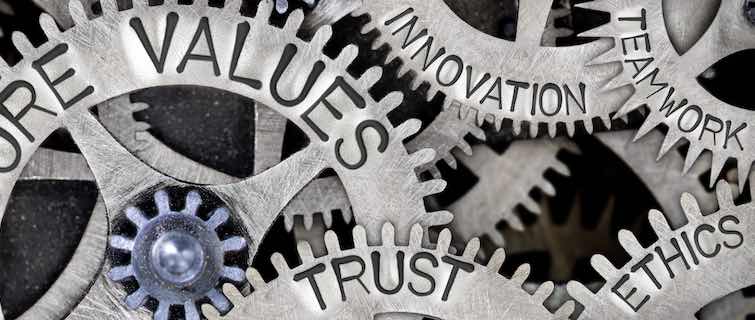
What are the keys to ethical leadership?
Have strong personal values. Communicate those values to everyone in your business or organization. Be impartial and transparent. And, perhaps most important, encourage all your employees, from the CEO on down, to speak up whenever they face an ethical quandary or see behavior that concerns them.
Do all these demonstratively positive things and—actually, you’ll still face challenges. It’s part of human nature and the way people behave in organizations.
David Fink, Vice President of Human Resources for Airbus in North America, said it can be tough to convince some employees—especially younger, newer ones—to embrace his company’s goal of having a “speak-up culture” about workplace issues.
“I think we just assume that people see it, they feel it,” Fink said. “But yet, when I go talk to people across the organization, there’s always this fear of, ‘If I speak up, is there going to be a consequence for me?’ I wish we could exterminate that. I don’t know how to exterminate that other than to do the things that we’re doing.”
‘Integrity Is the Foundation’
Fink and an Airbus colleague spoke recently with Peter Jaworski, Ph.D., an ethics professor at Georgetown University’s McDonough School of Business and School of Continuing Studies (SCS) in downtown Washington, D.C. SCS’s Master's in Project Management program has a partnership with Airbus to share ideas and initiatives.
Jaworski asked Fink and Stella Belvisi, Head of Legal and Compliance for Airbus North America, how important ethics is to their jobs, relative to other initiatives. Both said it was paramount.
“I see it really as the foundation,” Fink said. “Integrity is the foundation.”
Belvisi leads a team that responds to ethical issues at work and serves as a resource that employees can go to if they have ethical questions.
“If I were to describe my job in maybe one word, it would be a ‘compass’—helping direct and guide the company and the people,” Belvisi said.
Sometimes, Belvisi and her team have to make quick decisions, such as when an employee asked if it would be acceptable to accept a flight from a customer to a meeting. With only 10 minutes to work with, they got the facts, analyzed the situation, and reached a decision: Based in part on the limited amount of time they had to consider the issue, they thought it was best to decline the invitation.
Because many ethical questions are also personnel issues, Belvisi often discusses the situation with Fink as well as with her team. Most important is “that you look at the facts and not only jump to conclusions,” she said. “That being said, your values—the personal compass that each individual has—do play a part into understanding what that ethical dilemma is for that specific employee.”
Keeping Ethics Front and Center
In an ideal world, everyone would have a highly tuned moral compass that they could summon whenever ethical questions arose. But of course, reality is more complicated. Jaworski describes a form of self-deception called “ethical fading,” whereby ethical considerations can recede when one is highly invested in a taking a particular course of action.
One way to counteract ethical fading is to have reminders at work. Fink puts up posters and distributes coffee cups extoling ethical values, and Belvisi puts these tenants on cards that employees can keep on their desks.
Of course, all the reminders in the world won’t help if the company’s leaders—especially those who deal regularly with ethical questions—aren’t transparent, impartial, and sincere. Fink and Belvisi said the best kind of people for these jobs are self-confident but not egotistical, and comfortable working on teams.
There were times early in his career, Fink said, when he wished he had made a different decision on an ethically charged issue.
“There were times, perhaps, when I compromised my values,” Fink said. “But also—I left those companies. I made the decision that I’m going to be who I am wherever I go. And I’m thankful today to be in a company where I can do that.”
